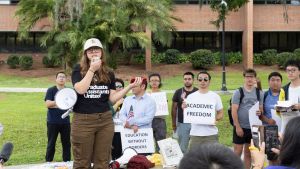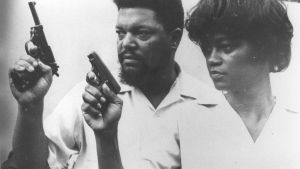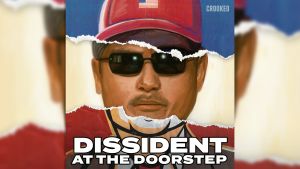
Cultural Revolution and Revolutionary Culture: A Conversation with Alessandro Russo
Alessandro Russo’s groundbreaking work Cultural Revolution and Revolutionary Culture (Duke University Press, 2020) revisits the Great Proletarian Cultural Revolution—a revolutionary process the inheritance of which is still open, even though most of the world, and China in particular, has all but disowned it. In his book, Russo excavates the unfinished work, theoretical debates, and possibilities of the movement. In this conversation, we talk with him about why lessons from the Cultural Revolution could help us think through how to reinvent mass democracy in an age of nationalism, limitless capitalism, and globalised war.
Christian Sorace: In your response to a recent review by Chris Connery (2023), you talked about the need for a ‘re-assessment of communist exceptions to capitalism’. While I am in complete agreement about this imperative, why do you consider the Cultural Revolution ‘the only opening available for an assessment of twentieth-century communism’? It seems that there should be other openings.
Alessandro Russo: There have been various communist exceptions to capitalist rule and I agree that one must consider them all to take stock of twentieth-century communism. The Cultural Revolution’s uniqueness lies in positing such a stocktaking and, more generally, the re-examination of Marxism’s whole theoretical and practical experience as the compass of the revolutionary process.
Not that one can view the revolutionary decade with the yardstick of a linear and progressive academic re-examination of the problem. It was a great mass political laboratory with a very tortuous, inevitably tumultuous course, in which, nevertheless, the restless questioning of the foundations of the twentieth-century communist experience was always on the horizon. It was even more so when that restlessness was symptomatically covered by the most obsessively dogmatic statements about the ‘absolute authority of Mao’s thought’.
The final years of the revolutionary decade, in which Mao Zedong stubbornly tried to promote a political assessment of events, are animated by the anguish of the question: ‘What really is the dictatorship of the proletariat?’ Mao even launched a mass political campaign for the theoretical study of this problem. He went so far as to say that ‘this problem must be clarified’ and ‘the whole country must be aware of it’ because a failure to clarify it would inevitably lead to the restoration of capitalist rule. This was an exact prediction, which confirms the essentials of his convictions in the last two decades of his life and finally condenses the deepest motivations of the Cultural Revolution.
The theme of ‘probable defeat’, which Mao reiterated more and more strongly from the early 1960s, constituted a decisive alteration of the perspective established in the Soviet Union, where in the 1930s Stalin proclaimed that he had achieved a ‘final victory’ over capitalism. The problem for Mao was what could be the political experimentation of an exception to capitalism that not only had no historical guarantee but also took place during a time when failure was the ‘most likely’ outcome. How to continue such experimentation without capitulating in the face of the capitalist rule of the modern world that was poised to reassert itself?
I can nuance my statement. The Cultural Revolution is the main opening point for a political assessment of modern communism because it is situated on the final edge of twentieth-century state communism and, at the same time, because it poses in advance the urgency of thinking critically about its end. It is the theme of ‘probable defeat’ that allows us to consider the political content of the Cultural Revolution beyond its ultimate defeat.
CS: In the last chapters of the book, you write about how Mao in 1975 called for a ‘mass debate’ and ‘critical reappraisal’ of the Cultural Revolution, which Deng Xiaoping categorically opposed. Instead, the dominant narrative that emerged in China and the West was that the Cultural Revolution was a ‘decade of turmoil’. What do you think the ‘mass debate’ would have said otherwise?
AR: The judgement of the Cultural Revolution as ‘a decade of turmoil’ corresponds to the ‘thorough negation’ decreed by Deng Xiaoping. However, the ‘turmoil’, in the sense of anarchic and uncontrolled disorder, was limited, as extensively documented, mainly to the period from the spring of 1967 to the summer of 1968—that is, the factionalist involution of the independent organisations that came into being in mid-1966. An unsolved problem for Chinese revolutionaries throughout the subsequent period was how to take stock of that powerful self-destructive motion.
Mao proposed in the autumn of 1975 launching a mass debate, not so much on the Cultural Revolution in general, but specifically on its inadequacies (有所不足), what had not worked, and what had not lived up to the intentions. Indeed, it was a risky debate, perhaps the boldest and most daring political campaign Mao had ever imagined. It is impossible to speculate about the results to which it would have led. Indeed, it would have involved everyone, including Mao, who would have had to question his own inadequacies. That mass debate would undoubtedly have reopened huge issues, such as the role and methods of the People’s Liberation Army in suppressing the Red Guards and, likewise, the processes of mutual self-destruction of independent organisations.
It would inevitably have been a very open debate, equally embarrassing for everyone. Perhaps it was precisely this awkwardness that Mao wanted to bring out as a driving factor for political clarification. Deng flatly refused Mao’s repeated invitations to direct that mass campaign. His official biographers, including his daughter, do not explain this refusal, not least because they attest that Mao treated Deng generously on that occasion and his position would certainly have been very influential. Mao not only put what had gone wrong first but also included the difficulty of distinguishing between those who had been ‘mistreated’ and those who wanted to ‘settle the score’ with the Cultural Revolution.
Deng was not among those who had been ‘mistreated’. On the contrary, he had been carefully protected (as were most major Party leaders overthrown in 1966, many of whom returned to their posts as early as 1972). From late 1966 until his return to the political scene, Deng lived in a village in the countryside, but in conditions appropriate to his bureaucratic status, and had constant contact with the Party centre. However, Deng was among those who wanted to ‘settle accounts’ with the Cultural Revolution. Indeed, at the bottom was a negative assessment of the revolutionary decade, even though Deng had solemnly promised ‘not to overturn the verdict’. That had been the condition for his return to the scene, but Deng undoubtedly had prepared not to keep that promise from the beginning. In this sense, Deng embodies a figure of political betrayal that has a long tradition in Chinese history (and beyond).
Ultimately, however, the deepest point of divergence between Mao and Deng concerned the role of the masses in politics. When Mao proposed that debate on what had gone wrong in the Cultural Revolution, he was manifesting his deep ‘confidence in the masses’. As he had said at the beginning of the Cultural Revolution, ‘the masses are capable of liberating themselves, and no-one has to act on their behalf’. Being capable of liberating themselves included learning from their mistakes. Deng, on the contrary, always regarded the involvement of the masses in political debates not only as an unnecessary waste of time but also as highly detrimental to the supreme political value of ‘stability’. His fundamental thesis was—as is well known—‘stability must prevail over everything’. The logic of ‘reforms’, even before establishing capitalism (capitalism of a particular kind, but still capitalism), was to radically expel the masses from political life. Politics has reverted to being the prerogative of Party-State officials who pursue the goal of integral stability, while ordinary people are left with the task of becoming integrally stabilised.
The real point of disagreement concerned precisely this. For Mao, the popular masses had a decisive role to play. This role should have been unreservedly encouraged and, in that particular case, should have served to rectify a series of mistakes made at the mass level. Mao’s last battle was over mass democracy, which would have entailed coming to terms with the mistakes made during China’s unprecedented experiments with mass political activism.
Conversely, Deng’s categorical rejection of that debate was the precondition for ‘thorough negation’. To prevent revolutionaries from coming to terms with their inadequacies was to prevent them from the possibility of overcoming and rectifying them. For Deng, the judgement of those events could not be debated at the mass level because it had to be the prerogative of the coalition of Party-State leaders who were reassembling themselves around the settlement of accounts with the Cultural Revolution.
CS: Recently, you have argued that the Russian invasion of Ukraine has made the aspiration of internationalism even more remote by reducing the Soviet Union to a colonial apparatus. Is there anything in the theoretical debates and political experiments of the Cultural Revolution that could offer lessons for collective existence beyond the national form? Or, is the nation-state an internal limit of twentieth-century communist experiments?
AR: You are referring to the text that I co-authored with Claudia Pozzana on ‘WW4’ (Pozzana and Russo 2023). We did not offer an analysis of Putin’s Russia but rather of the structural causes of the emergence of a globalised state of war. We argued that the Cold War had undoubtedly been a ‘Third World War’, which did not become ‘hot’ because it was constrained by the existence of a limit to capitalism, constituted by communist exceptions. Today, the unlimited extension of capitalism is the condition for limitless war.
The second part of your question touches on two crucial points, both particularly thorny: whether the nation-state was one of the main obstacles to communism in the twentieth century and whether other avenues were sought in the Cultural Revolution that might have contemporary value.
On the subject of the nation-state, it should be remembered that in the communist perspective of Marx and Lenin, overcoming both nation and state was essential. ‘Proletarians have no fatherland,’ Marx said; as for the state, the problem was how to organise its decay until its final abolition. The value of national liberation struggles was to be measured by the yardstick of internationalism. The establishment of a socialist state was conditional on overcoming the separateness from society of the bureaucratic and military apparatuses characteristic of bourgeois states and, ultimately, of all state forms in history. This vision that guided Lenin in State and Revolution—a very articulate text—was formulated right at the beginning of World War I, when all the major European social-democratic parties expressed loyalty to the nation-state, fully adhering to supporting their respective states in the great carnage of the war.
From Stalin onward, the question of the state takes an entirely different path. The consolidation of bureaucratic-military apparatuses becomes the central task of the communists. Yes, the national question continued to be articulated in terms of internationalism, but this was conceived of as a network of state relations. Especially after World War II, proletarian internationalism becomes an interstatism with the Soviet Union at its centre.
This path produced a twofold effect. On the one hand, the existence of a ‘socialist camp’—that is, a large part of the world where, in principle, an alternative path to capitalism was being tried out—was the main factor that prevented the Cold War from becoming an open war. The Cold War can be considered fully global. However, it did not become a full-scale military confrontation precisely because of the existence of civil stakes in the confrontation between the two blocs around the issue of which form of state was more just.
On the other hand, in the ‘socialist bloc’, the national theme was firmly embedded in a framework of interstate relations. After the collapse of the Soviet Union, the situation reversed into its exact opposite: fictitious internationalism, which had frozen the national theme without resolving it, turned into unbridled nationalism. In all the states that were part of the Soviet Bloc and had just become independent, a nationalist identitarianism took hold, feeding, as we see in the clash between Russia and Ukraine, the worst warmongering tendencies.
Judging from the Chinese Government’s insistence today on the value of national identity, one might think that this is the inevitable result of an earlier, cosmetic internationalism that masked a statist conception of the nation. However, I believe that until recently, there was a fairly open debate in China on this issue, which ended drastically more or less 10 years ago. I give an example that I think is significant. In 2009, the long introduction to Wang Hui’s book The Rise of Modern Chinese Thought, recently translated in its entirety into English, was anticipated in Italian in a volume with the title, chosen by the author himself, ‘Empire or Nation-State?’ (Impero o stato-nazione?). Five years later, the US edition of the same introduction bore the title ‘From Empire to Nation-State’. Removing the question mark signals a shift that is not unique to this author. The prospect that the nation-state had been an open question in China, which had characterised modern intellectuality, was obscured by a fully statist turn that again merged the two terms.
Indeed, throughout Chinese political thought since the late nineteenth century, the question of what a Chinese ‘nation’ could be after the collapse of the imperial state and what state form could correspond to it has been decisive. This probing animates the ‘New Culture’ of the late 1910s. Even the Cultural Revolution, if one rereads it outside the obscurantist anathemas that have covered it for decades, was shot through with a critical rethinking of national identity, which took neither ‘Chineseness’ nor modern statehood—even that of twentieth-century communism—for granted. Consider how many critical points of this question were touched on by a political movement (today among the most vituperated and least studied) such as the ‘critique of Confucianism and reappraisal of Legalism’. Unsurprisingly, it was followed by a radical questioning of the foundations of socialist statehood—that is, the abovementioned movement of theoretical study on the dictatorship of the proletariat.
I believe important lessons can be learned from different moments in modern Chinese history in which the dialectical tension of state and nation has been kept open in search of new ways forward.
CS: You write: ‘The world must be reinvented politically.’ Where does China today stand in relation to this reinvention?
AR: The Chinese Government is among the biggest obstacles to political reinvention today. The fact that it continues to proclaim itself communist, Marxist-Leninist, and even Maoist is decisively disorienting. As for possible political novelties coming from Chinese society, one would have to make inquiries in the field. I have not had a chance to go to China in four years; what comes from there is filtered through obsessive censorship. Judging from what is allowed to be published ‘officially’, one can well understand how Chris Connery writes that in China any form of ‘critical’ thinking, in whatever sense one might understand it, is at its lowest level in 130 years. The situation is indeed reminiscent of the decades following the Taiping crackdown in the mid-nineteenth century.
On the other hand, there are undoubtedly underground currents of thought and individual thinkers who are looking for something politically new, including a new way of rethinking Chinese politics in the past century. However, given the situation, they seem scattered or careful not to reveal too much. At the official level, there is a generalised homogenisation of the intellectual world. What were until a decade ago more or less differentiated, and sometimes even conflicting, currents of thought are now flattened into a single chorus. The ‘neo-Confucian’ wing, the ‘neoliberal’ wing, and the former ‘new left’ wing (the saddest voices in this chorus) sing more or less the same song in honour of the ‘rejuvenation of the nation’. At this moment, blind faith in ‘state capacity’ and complacency about a cultural and even ‘moral’ superiority of the Chinese tradition, all seasoned in ‘Marxist-Leninist-Maoist’ sauce, are to thinking in China like the Enchantment of the Golden Hoop (紧箍咒) used by the monk in the novel Pilgrimage to the West to keep the Monkey King under control.





